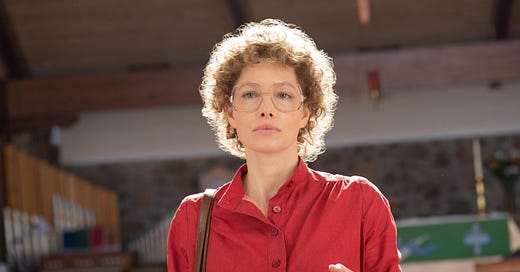TV Review: Why Hulu’s 'Candy' is Exceptional, and Max’s 'Love and Death' is Just Meh
One crime, Two True Crime Limited Series
Upgrade to paid to play voiceover
Candace (Candy) Lynn Montgomery is a church-going, first row in the choir singing Texas housewife who killed her ex-lover’s wife and friend, Betty Gore, by striking her 41 times with an ax and was acquitted of murder in 1983. On May 9, 2022, Hulu released its limited true crime series Candy starring Jessica Biel, and HBO/Max (soon to be called Max..I th…
Keep reading with a 7-day free trial
Subscribe to VisAbleBlackwoman’s Substack to keep reading this post and get 7 days of free access to the full post archives.





